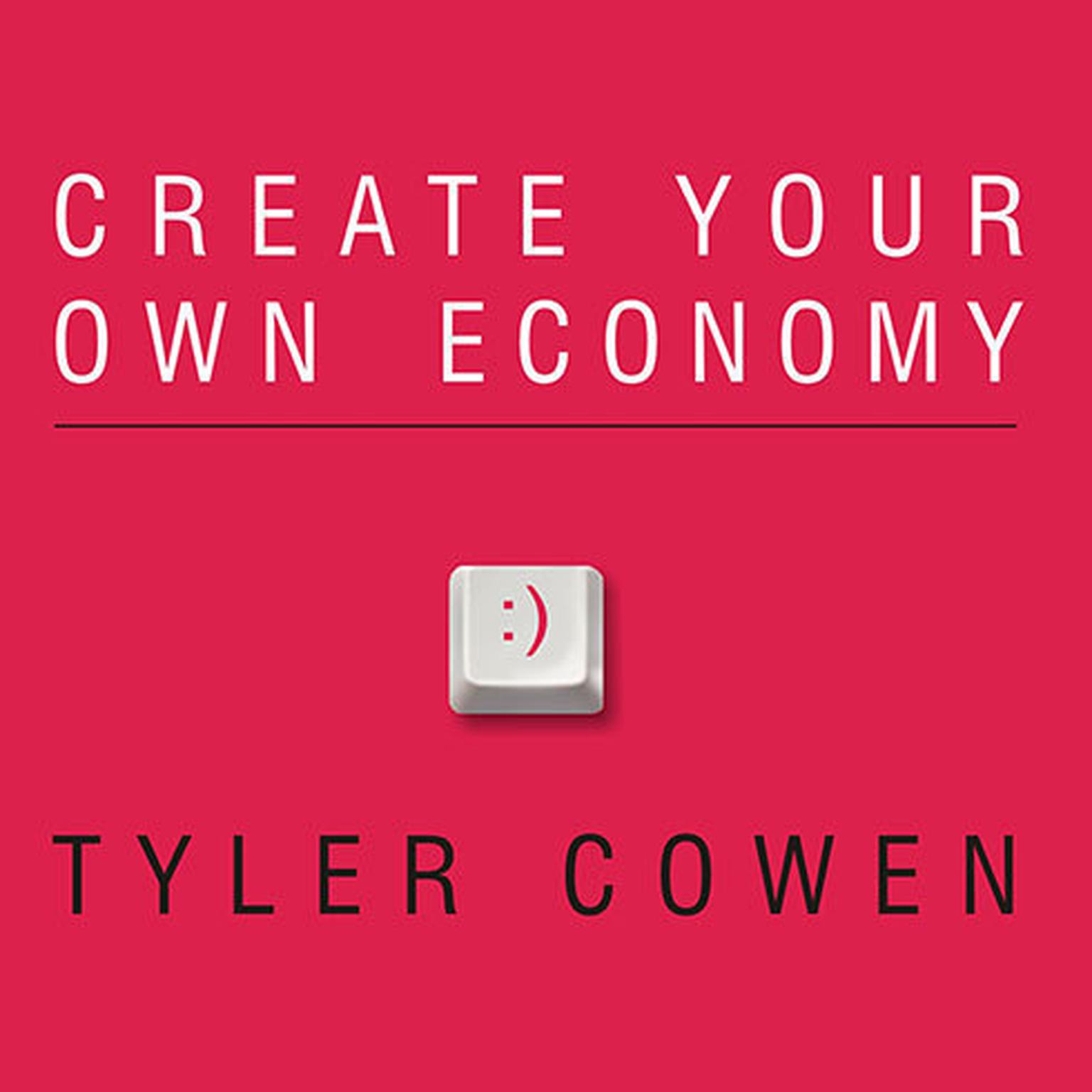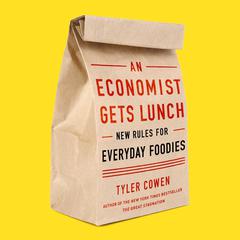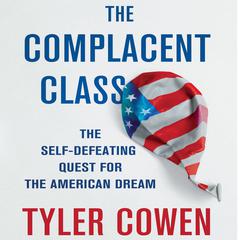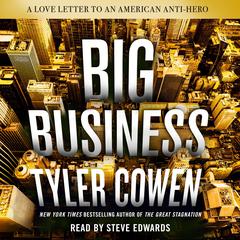 Play Audiobook Sample
Play Audiobook Sample
Create Your Own Economy: The Path to Prosperity in a Disordered World Audiobook
 Play Audiobook Sample
Play Audiobook Sample
Quick Stats About this Audiobook
Total Audiobook Chapters:
Longest Chapter Length:
Shortest Chapter Length:
Average Chapter Length:
Audiobooks by this Author:
Publisher Description
How will we live well in a super-networked, information-soaked, yet predictably irrational world? The only way to know is to understand how the way we think is changing.
As economist Tyler Cowen boldly shows in Create Your Own Economy, the way we think now is changing more rapidly than it has in a very long time. Not since the Industrial Revolution has a man-made creation—in this case, the World Wide Web—so greatly influenced the way our minds work and our human potential. Cowen argues brilliantly that we are breaking down cultural information into ever-smaller tidbits, ordering and reordering them in our minds (and our computers) to meet our own specific needs.
Create Your Own Economy explains why the coming world of Web 3.0 is good for us; why social networking sites such as Facebook are so necessary; what's so great about "Tweeting" and texting; how education will get better; and why politics, literature, and philosophy will become richer. This is a revolutionary guide to life in the new world.
Download and start listening now!
"An interesting book that discusses the cognitive traits of autistics and relates them to things like the internet, Facebook, Twitter, the IPod, politics, and other subjects. The idea is that these technologies allow us to impose our own order on things that were previously ordered for us (e.g. MP3 files versus CDs) and the desire to impose order and classification on things are autistic traits. The discussion of the strengths of autistic traits was interesting as well as the discussion about how many influential historical figures such as Adam Smith may have had these traits as well (though Cowen is careful to point out that it is impossible to make a firm diagnosis based just on history). It is a book that covers an unusual, but very interesting, set of topics. Fans of Cowen's work (which I am one) will enjoy it."
— Chris (4 out of 5 stars)
Quotes
-
Patrick Lawlor tackles this study in behavioral economics with ease.
— AudioFile
Create Your Own Economy Listener Reviews
-
" I have no idea why autism is neither in the blurb or the title because that's what the book is about, everything is wrapped around the author's hypothesis that autistic thought patterns might be more suited to the modern age. Which is a fine hypothesis but the book does limit itself as a result and never really gets to what it claims it will in the title. "
— Michelledenisenorton, 2/13/2014 -
" This would be worth reading just for the chapter on Sherlock Holmes. Fortunately, the rest of it is good, too. "
— Joe, 2/12/2014 -
" Couldn't do it. Got really boring really quick. Not my thing. "
— Francois, 2/10/2014 -
" People love this guy. I don't quite get it. A lot about Asbergers and Autism. "
— Marc, 1/27/2014 -
" The intersection of neurodiversity, economics, psychology & technological progress. Yeah! "
— Sam, 1/26/2014 -
" Interesting and perceptive! Cowen draws upon a number of fields in this book, and it definitely opened up my eyes to some new things. At times the book reads like a collection of blog posts or essays; it could use a bit of reorganizing and editing. "
— Jodi, 1/1/2014 -
" Book was mostly navel gazing on autism from Tyler. Abandoned it halfway through. "
— Kahhl, 1/1/2014 -
" A very interesting read. A lot of great ideas about the value of the internet and modern culture; gets bogged down in the details of autism at some point. "
— Padraic, 12/30/2013 -
" wonderful and insightful work by one of the original thinkers of our day "
— bobby, 10/11/2013 -
" Chock full of fascinating ideas. A celebration of neurodiversity. "
— Michael, 10/20/2012 -
" "Create Your Own Inner Life" would have been a more accurate if less arresting title. By "prosperity" Cowen means rich interiority, not actually, you know, money. As long as you take him in the proper spirit you can extract a good deal from the book. "
— Aaron, 6/21/2012 -
" I finished 70% of the book and it still seemed to be going nowhere. Some interesting facts and ideas but no enough to keep interest. "
— Deb, 1/14/2012 -
" This guy sure thinks that autistics have it all figured out. Pretty much the underlying theme of every chapter. "
— John, 1/9/2012 -
" Listened to this book: some interesting tips; however, the autism parts seemed a bit forced. "
— Major, 5/9/2011 -
" Couldn't do it. Got really boring really quick. Not my thing. "
— Francois, 2/1/2011 -
" This would be worth reading just for the chapter on Sherlock Holmes. Fortunately, the rest of it is good, too. "
— Joe, 12/30/2010 -
" I finished 70% of the book and it still seemed to be going nowhere. Some interesting facts and ideas but no enough to keep interest. "
— Deb, 10/30/2010 -
" A very interesting read. A lot of great ideas about the value of the internet and modern culture; gets bogged down in the details of autism at some point. "
— Thirsty_Mind, 11/29/2009 -
" People love this guy. I don't quite get it. A lot about Asbergers and Autism. "
— Marc, 11/22/2009 -
" Book was mostly navel gazing on autism from Tyler. Abandoned it halfway through. "
— Kahhl, 10/19/2009
About Tyler Cowen
Tyler Cowen, PhD, holds the Holbert C. Harris chair in economics at George Mason University. He is the author of several books, including the New York Times bestseller The Great Stagnation, and a number of academic books. He writes the mos- read economics blog worldwide, marginalrevolution.com. He has written regularly for the New York Times and contributes to a wide number of newspapers and periodicals.
About Patrick Lawlor
Patrick Lawlor, an award-winning narrator, is also an accomplished stage actor, director, and combat choreographer. He has worked extensively off Broadway and has been an actor and stuntman in both film and television. He has been an Audie Award finalist multiple times and has garnered several AudioFile Earphones Awards, a Publishers Weekly Listen-Up Award, and many starred audio reviews from Library Journal and Kirkus Reviews.










